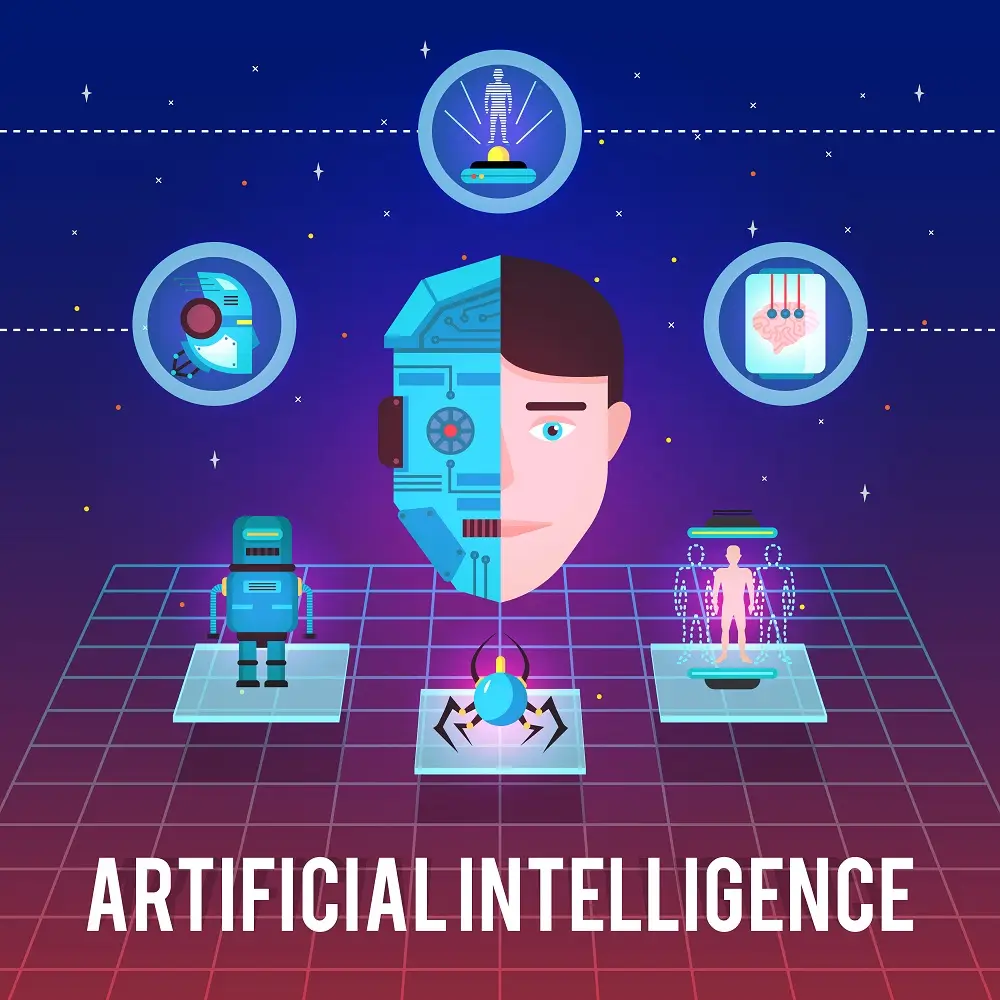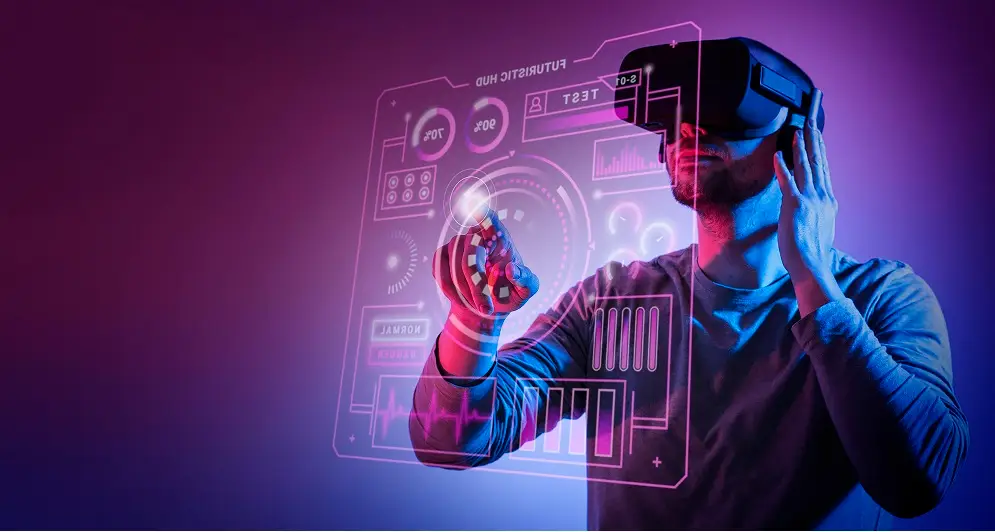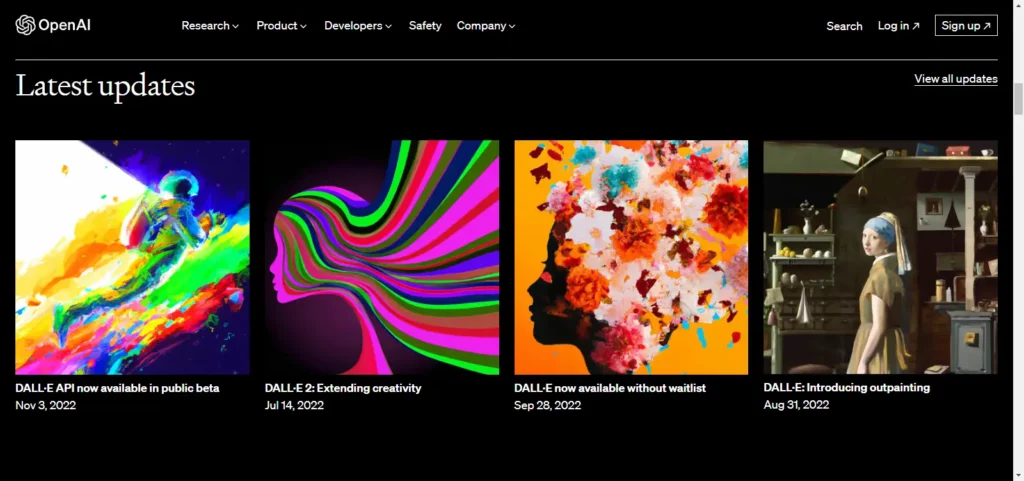Artificial Intelligence (AI) is one of the most talked about phenomena in recent years. It is a topic to which studies, documentaries, books, films, and countless contents have already been dedicated to understanding all its dimensions. We are closer to understanding it as we witness its potential in different industries. However, there is still much to discover.
To begin with, giving a precise definition of AI has been an arduous task for scientists, psychologists, engineers, linguists, developers, and thousands of professionals. Until now, we have tried to explain that AI is a simulation of processes by machines or computer systems aiming to replicate human behavior and intelligence.
The development of AI has had exponential growth. Today, we can see great advances in transportation, with autonomous vehicles, in medicine, when making diagnoses with image analysis or finances, and with the implementation of chatbots.
AI’s push in different industries is evident, inevitably unleashing a wave of optimism that is not without concerns. Technological advancement is not innocuous; it is always accompanied by questions related to the impact on society, which often have ethical nuances.

The risks of artificial intelligence
Several specialists have asked questions such as: How to build legislation to make AI fairer? How can the risks be reduced? What happens if the systems are hacked? Is it possible to implement automation without displacing humans? Such questions have revealed several risks that we have already experienced and possible situations that we may face in the future. Some of them are:
1. Impact on employment
This will always be one of the main concerns because, throughout history, major technological changes have been accompanied by social changes, which have implied the disappearance of jobs. The real challenge is for companies and workers to adapt to events such as automation and digitalization.
2. Manipulation, security, and vulnerability
As internet users, we reveal much private information, often with little thought. This data can be analyzed to predict events such as voting results. The problem is that all this information can be used to manipulate people to make decisions that suit specific groups beyond social well-being.
3. Transformation of human relationships
Our interactions and social processes have changed with the proliferation of devices, applications, and tools with AI. With this panorama, the possibility of losing our personal abilities seems closer.
4. Autonomy
One of the biggest fears around AI is reaching the point where it becomes autonomous and makes its own decisions without thinking about humanity. Although this fear is mainly fueled by science fiction and the film industry, some cases, such as chatbots that created their own language, are incomprehensible to their programmers.
5. Ethical principles to face risks
Over the years, experts have dedicated themselves to establishing guidelines that allow technological development and its implementation to be done responsibly and safely. When choosing an ethical perspective, we seek the universality of principles that guide the different scenarios in which AI is involved. It is certainly a complex task that goes beyond saying that it is good or bad, but it is a worthwhile effort because by delimiting certain standards, it is possible to enhance the benefits of technological development and reduce the risks. Below, we share some consensuses that the European Union has reached:
6. Respect for human autonomy
When developing any intelligent system, respect for life and human rights without any discrimination should always be in mind.
7. Transparency
The idea is that there is traceability and a clear explanation of the objectives and operation of the systems. For example, let’s talk about an analytics tool. There must be transparency in the data used, the functioning of the algorithm, and the results obtained.
8. Responsibility and accountability
When developing any system, responsibilities must be clearly assigned for possible damages. The autonomy of the systems should not be an excuse to avoid these obligations.
9. Robustness and security
Secure, reliable, and robust algorithms must be developed to operate accurately and respond to potential system failures, errors, and cyber attacks.
10. Justice and non-discrimination
This is essential for equitable implementation of AI around the world. Data must be used honestly and impartially, avoiding discrimination and other factors exacerbating disadvantages in certain minorities.
There are still many gray areas, not least because it is complex to elucidate the boundaries between what is beneficial and what is not. Despite the risks, viewing AI with fear would be a mistake because its multiple applications can be truly helpful for society.
The focus should be on regulating those responsible for these developments, as they are the key to making AI a tool, not a weapon.




